It’s always a highlight of any trip to Poland. To begin with, there are the views. As it’s the highest parish in Poland and situated just above Zakopane and opposite the Tatra range, they’re incredible. Then there is the virtual trip back in time. With people still literally using horse power, it sometimes feels like you’re trapped between two centuries. So there’s all that, but most importantly, there’s family.
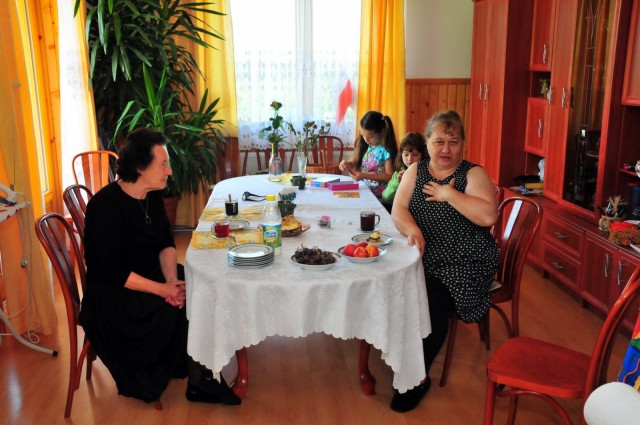
Babcia comes from Ząb and still has family there: her mother, a brother, a sister, and countless cousins. Any visit starts there. We always begin there.
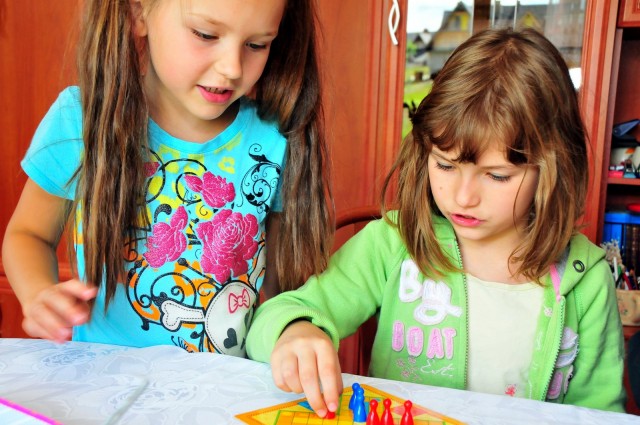
The older girls arrive and discover a board game — immediate obsession.
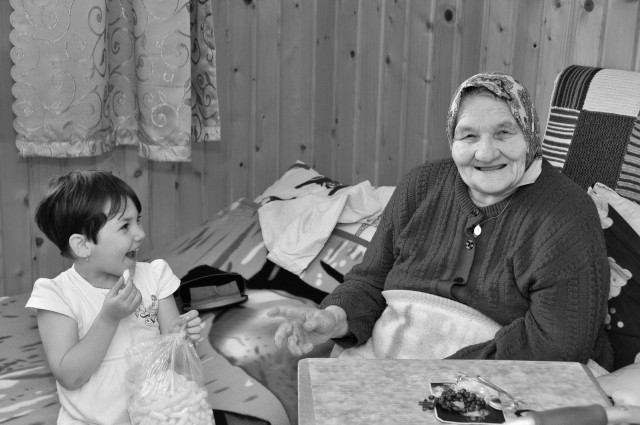
The littlest, though, heads straight for great-grandmother, who has a big — an enormous — bag of puffed corn.
We have lunch; we chat; Babcia has some quite moments with her mother. It’s as it always is, as it always should be.
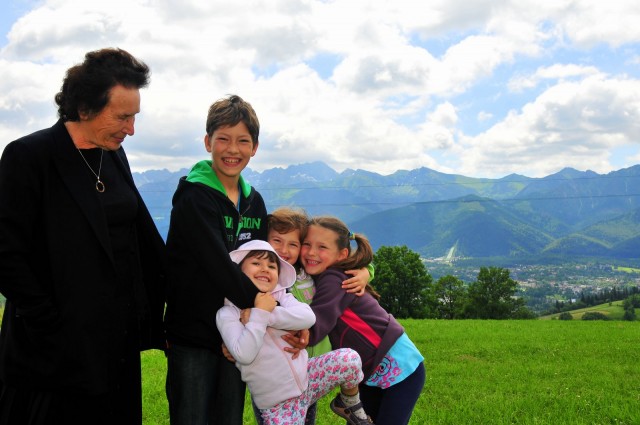
After a bit of food (what Polish visit would be complete without food?), coffee, and conversation, we had to Furmanowa, a field overlooking Zakopane directly across from the whole Tatra range. A visit to Ząb would never be complete without it, for the views are absolutely incredible.
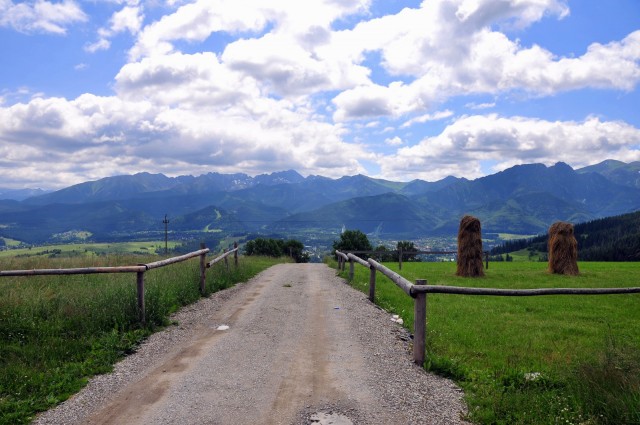
As we approach, Babcia informs us that the weather is definitely going to change: “The mountains look so close we could touch them.” Indeed, there’s a clarity in the air that belies the fact that the weather for the past week and a half has been absolutely miserable.
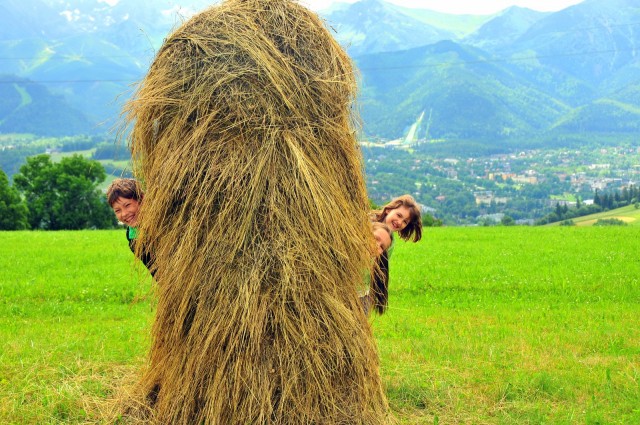
But the recent change in weather — although Babcia assures us that it’s temporary — has brought out the excitement and silliness and everyone.
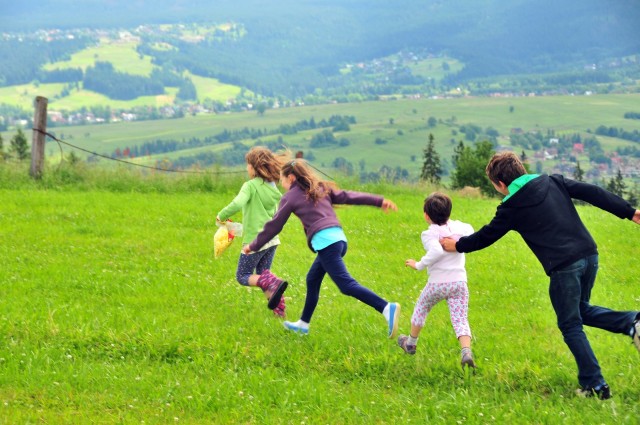
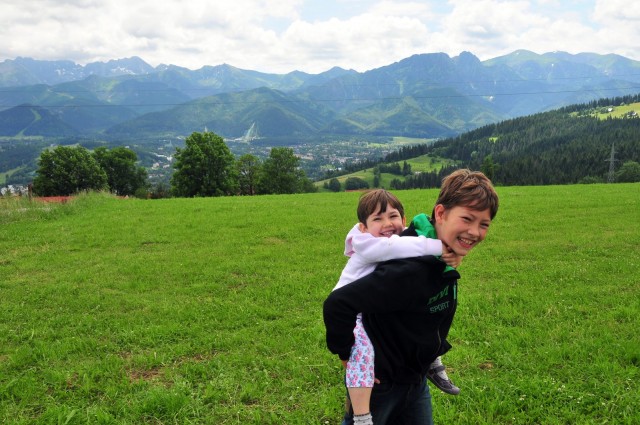
But the views. It’s hard to look away.
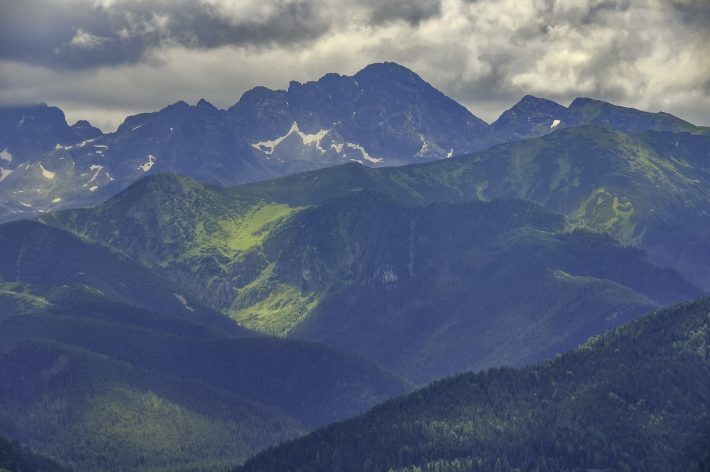
Today, though, we make some changes.
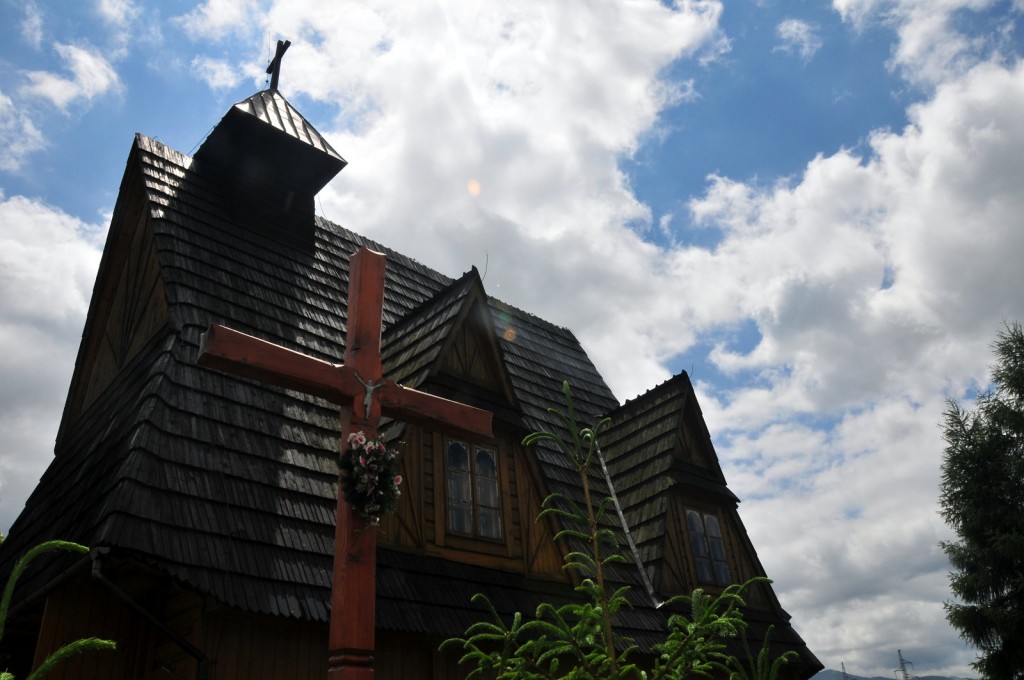
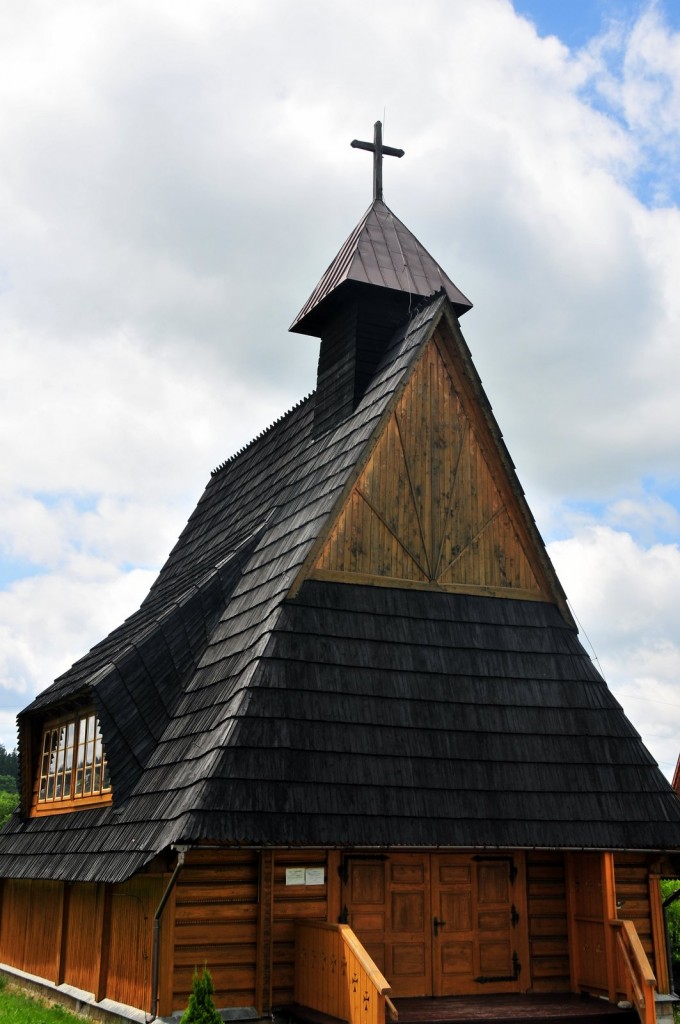
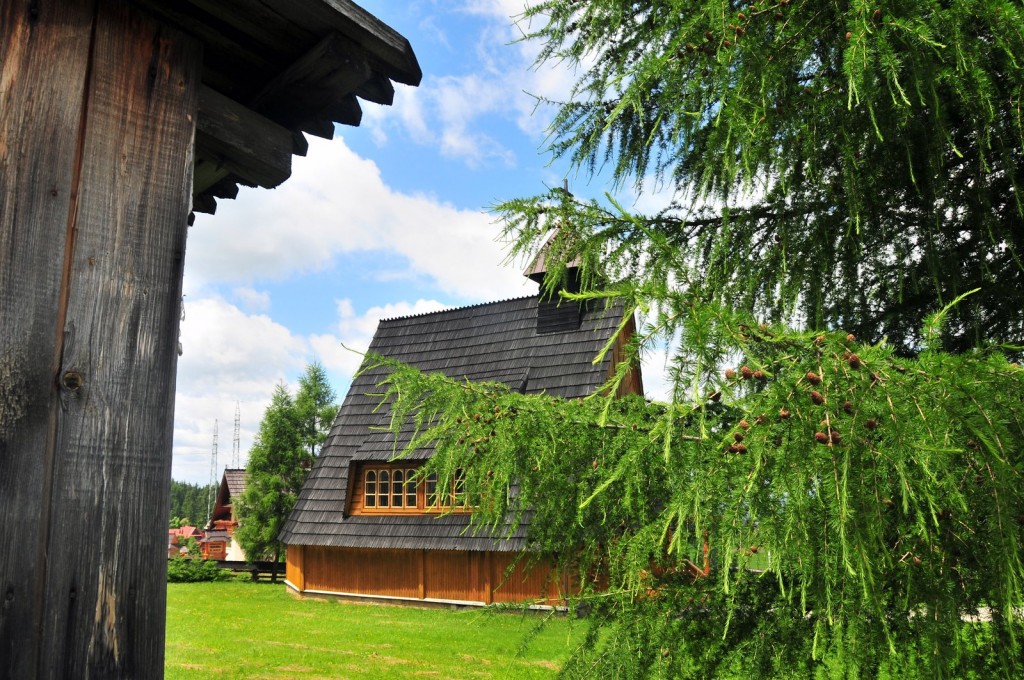
We head up by the fairly new church looking for Babcia’s grandmother’s house — the Bobak homestead. In front of the house, an unknown babcia sits knitting socks (probably for later sale in Zakopane), and she asks with a certain clairvoyance, “Are you family?” She speaks the local dialect: at the same time thicker, heavier than standard Polish and somehow lighter at the same time. I struggle to keep up with the conversation — same story as always.
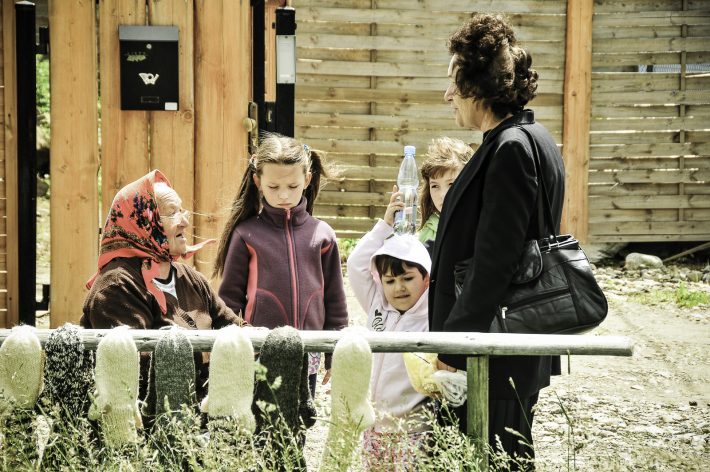
She informs Babcia that there’s someone around back working, so we head around the house to find Babcia’s cousin raking hay.
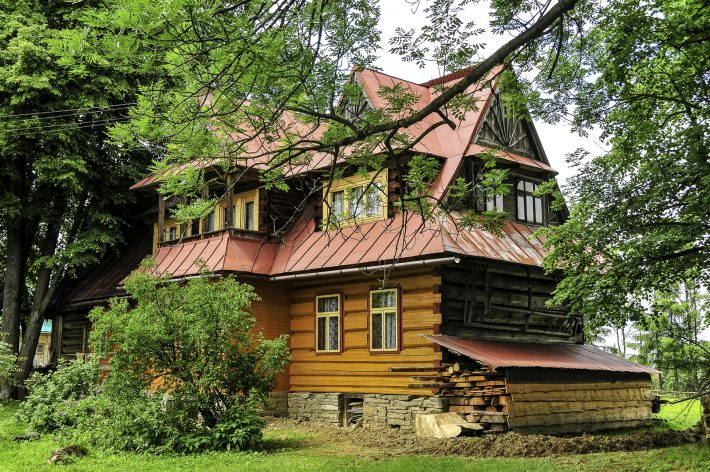
They engage in the small talk that makes family family, but initially, the house steals everyone’s attention.
“At one time,” Babcia explains, “it was widely considered one of the most beautiful houses in the region.” It’s easy to see why.
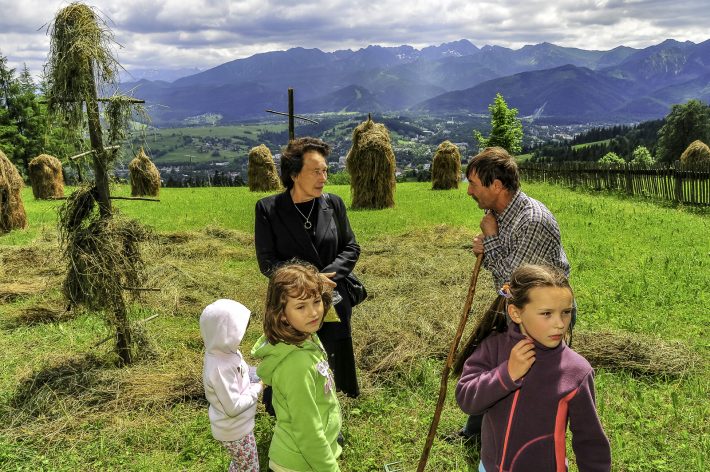
And of course, the views from their back yard — such as it is — aren’t bad either.
L and S have different things on their mind, though.
“Masz kota?” asks L. Fortunately, it’s family, so it’s not a big deal that L, as she always does, is speaking in the familiar voice when asking if they have a cat. Properly speaking, L should be speaking to adults in the third person to show respect, but the only people she’s ever spoken to in Polish are family, so in a sense, it’s not a big deal this time. However, she’s been talking to strangers like this.
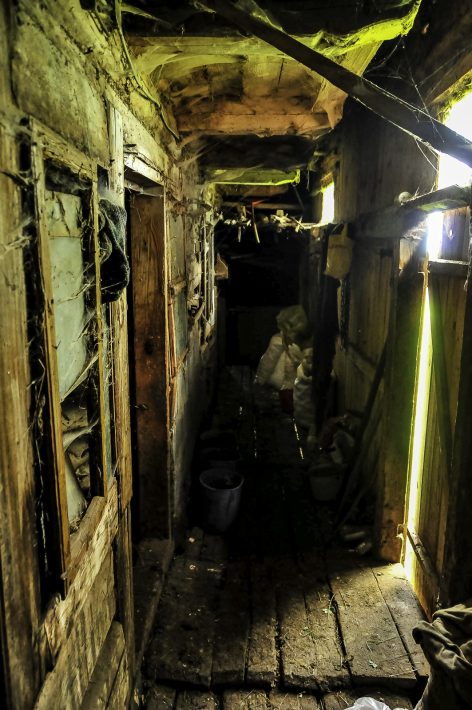
But this time, it’s family, and I don’t really feel the necessity to explain and correct. And besides, the girls have run off to the barn as Cousin A suggested, and I’m enchanted myself: the views, the people — it’s all a bit overwhelming as it always is.
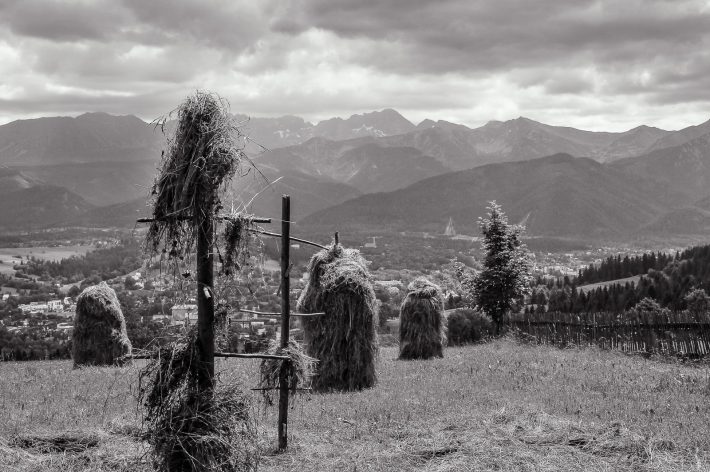
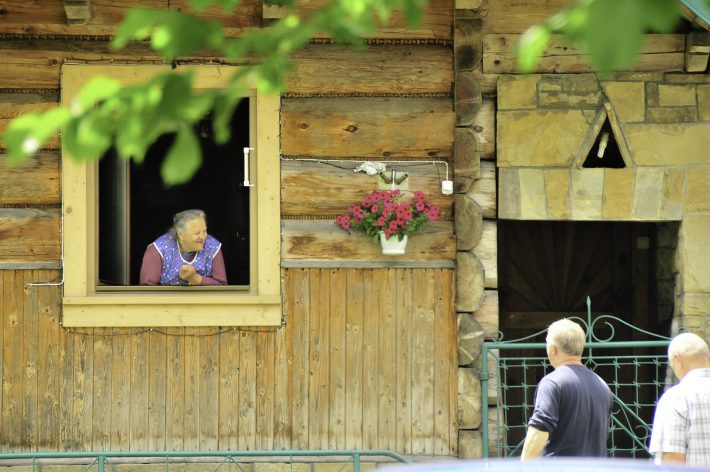
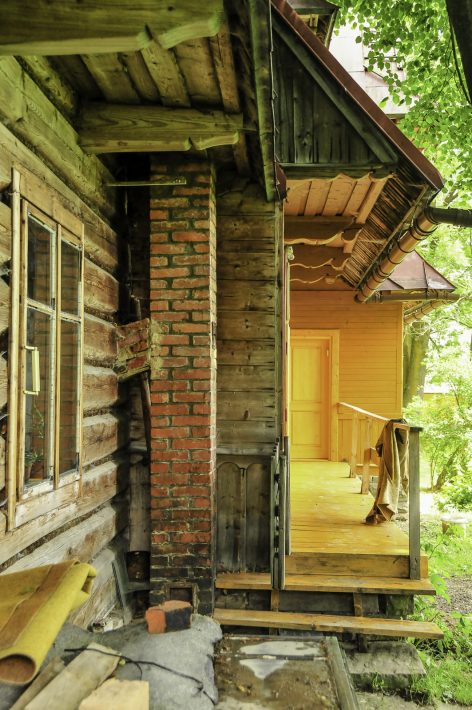
We return to the main road and Babcia picks up the conversation where they left off. More introductions, explanations, history: it always comes back to who you know here, looking for that common ground. In Ząb, though, there are really no strangers.
“Who was she?” I ask.
“I’ve no idea,” Babcia admits. She hasn’t lived here in decades and doesn’t remember everyone. “Ask Aunt Z when we get back,” she suggests. I will, and Aunt Z will immediately recognize her; Babcia will recognize the name.
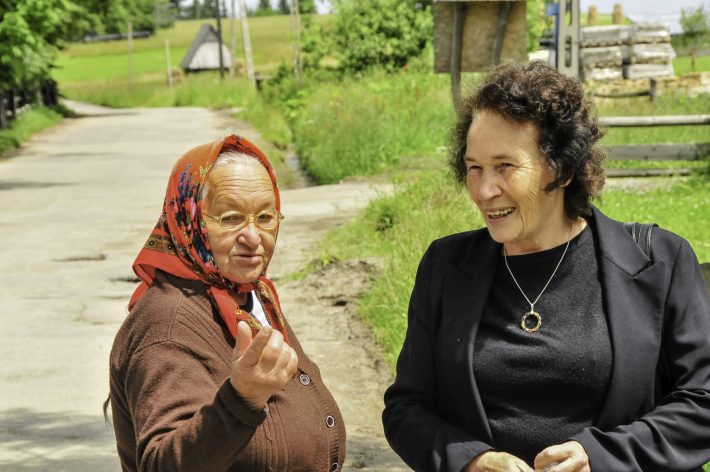
But in the meantime, we’re still exploring.
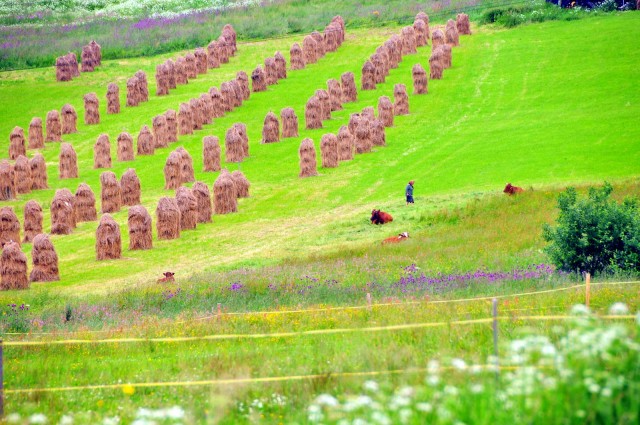
“Let’s go to the John Paul II memorial,” Babcia suggests, and we find it easily enough: we’d walked right by it searching for L’s great-great-grandmother’s house but somehow not even noticed it.
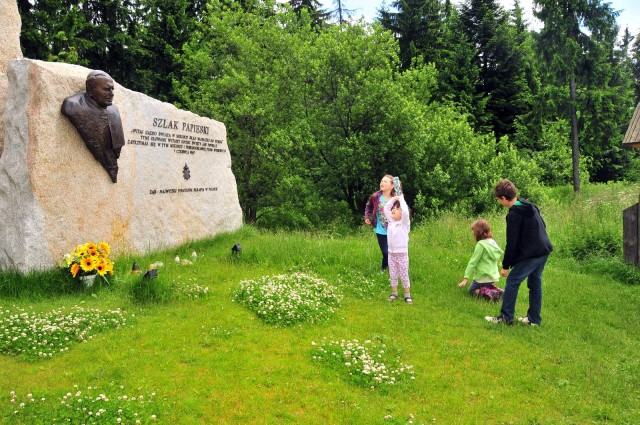
One thing, though doesn’t escape any of the cousins’ notice as we approach: the small kisok to the right that promises ice cream.
“Masz czekoladowy?” asks L. The salesman is just out of his teens, but he’s an adult, and L should be talking to him in the formal third person. I whisper “Czy Pan ma…” in her ear, and she reframes the question. Still, he’s now busy preparing four ice cream cones, none of them chocolate.
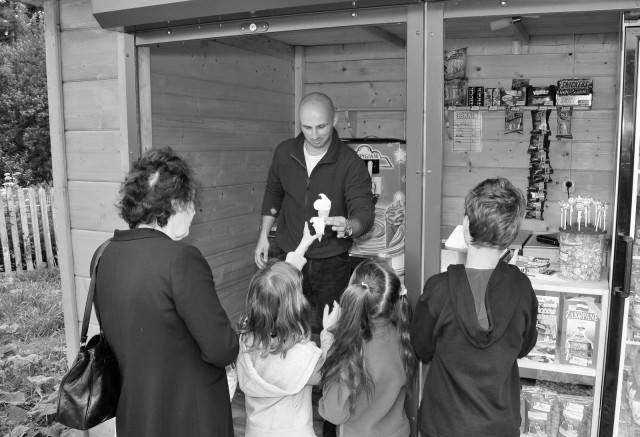
“Let’s go a little further,” Babcia suggests. “I’ll show you the path we all took when we wanted to go to Zakopane. There were no buses, no taxis — everywhere we went, we went on foot.” It takes us a little while to find the path, though. “None of these houses were here,” Babcia explains.
One false start leads though a mine field of dung and past a couple of sheep grazing.
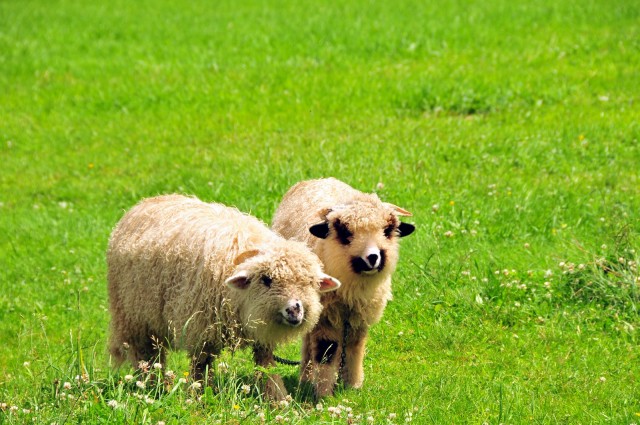
“No, no, I don’t think this is it,” Babcia explains. We walk a little further and suddenly, “Oh! There! There it is.”
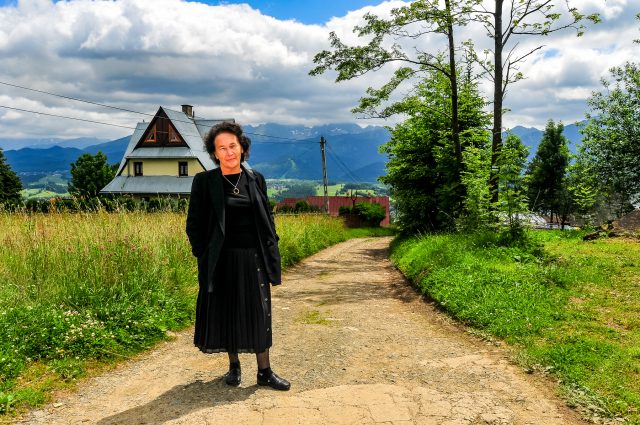
“It looks just the same — just the same — as when we walked there. Of course, I stayed in a dorm during high school, so I only made the trip on the weekends.”
“You stayed in a dorm?” asks W incredulously. “And you only came home once a week?”
“It was the best time of my life!” Babcia explains. “I had my own bed, my own closet! It was paradise.”
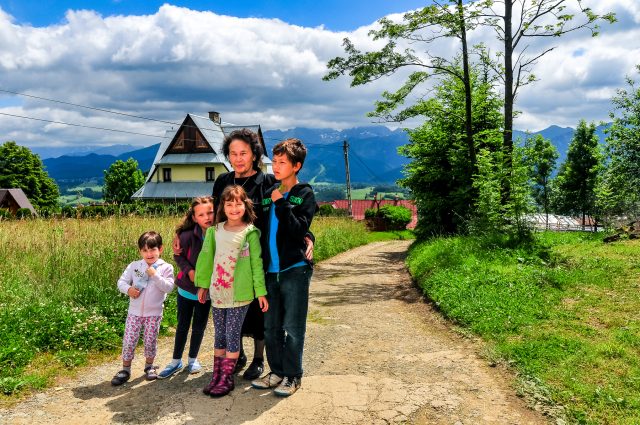
We wander about a bit more, then finally return to Aunt Z’s house. Great-grandmother is waiting. Babcia sits with her mother, listening to the radio, commenting about the recent developments in the country.
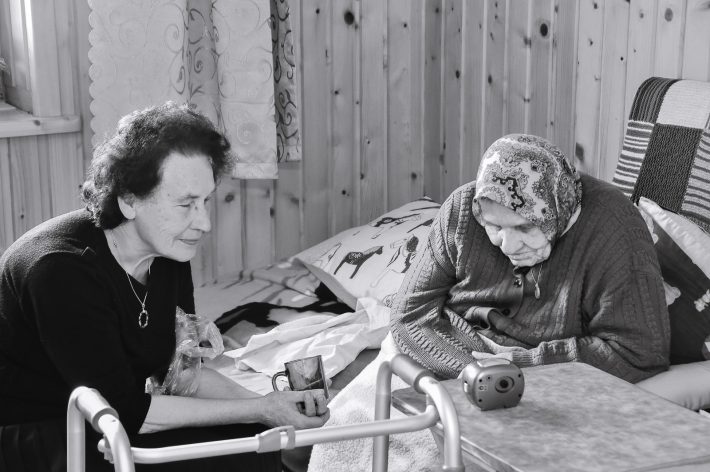
“We’ll come back again soon!” Babcia promises a few minutes later as we’re leaving. “Soon!” she reassures everyone.
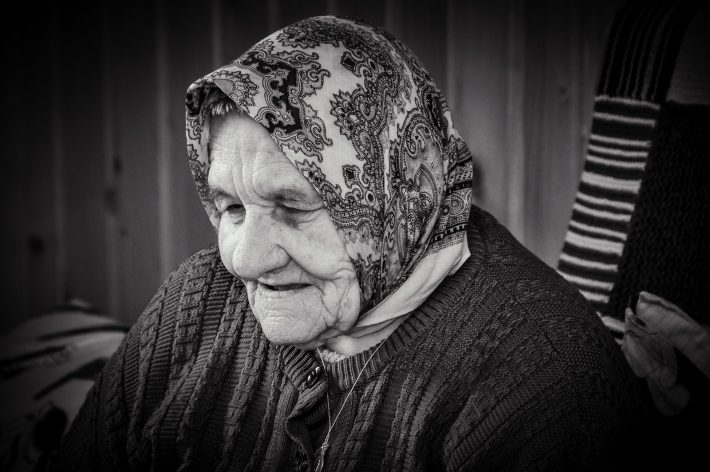
“Why even leave?” I want to ask. But the temporary nature of such small tastes of heaven only intensifies the sweetness, and so perhaps it’s best that we leave it all behind for a week or two.